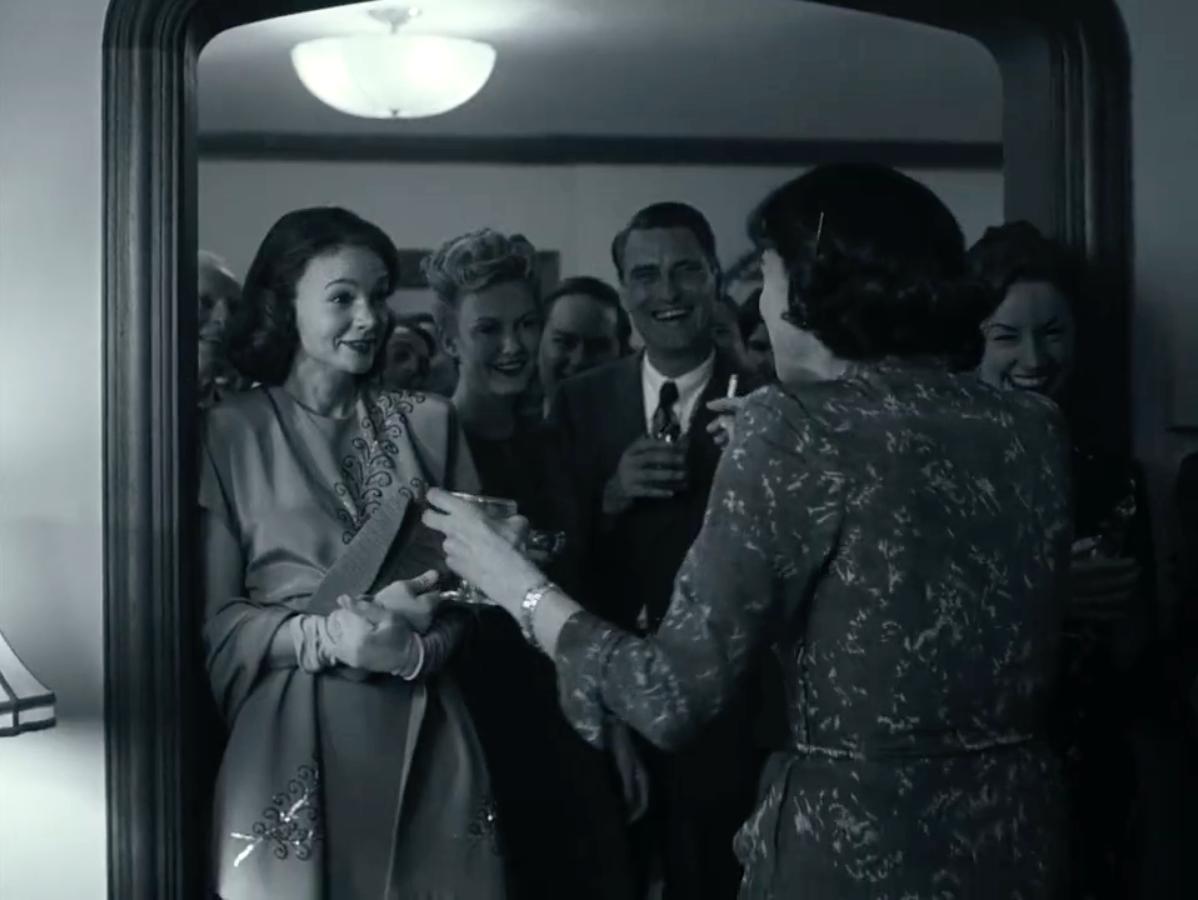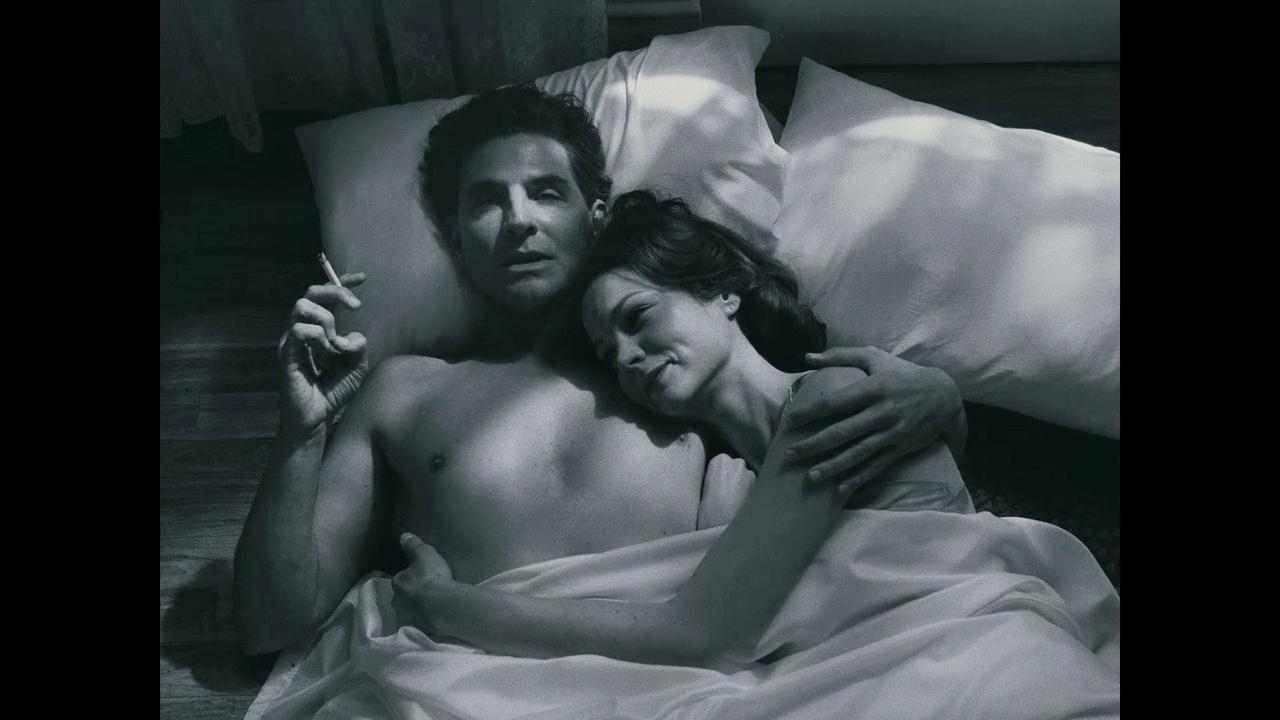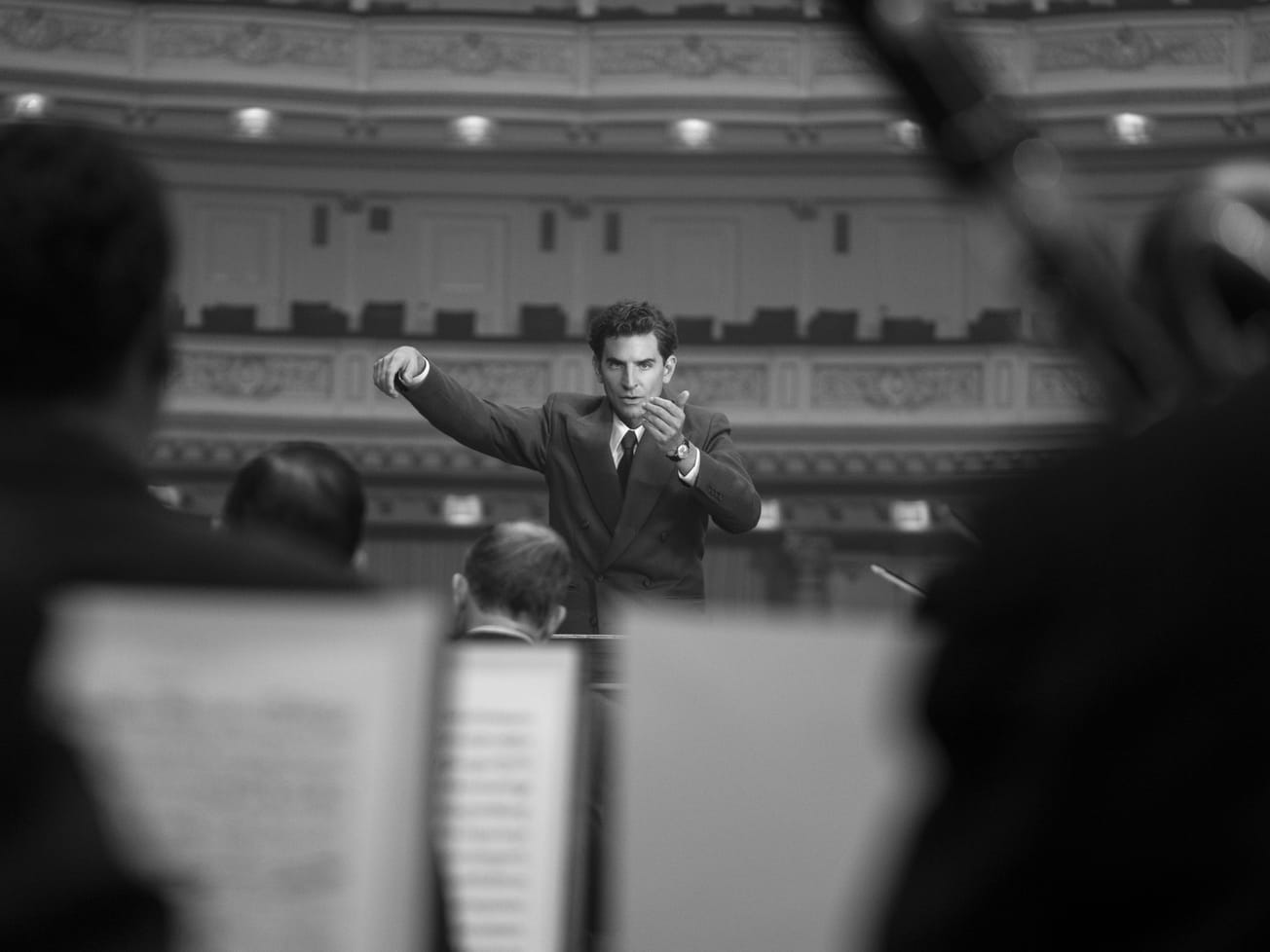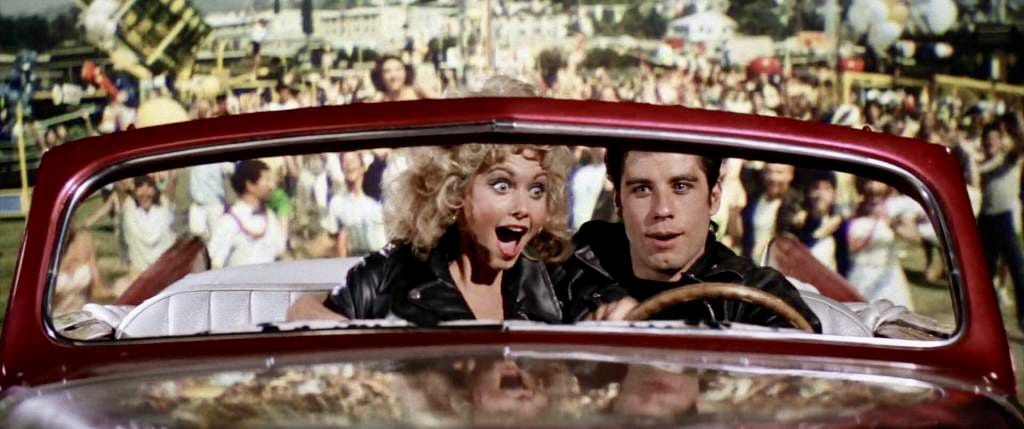Magnus Solberg, MA Film and Television
'If the summer doesn’t sing in you then nothing sings in you. And if nothing sings in you, then you can’t make music.'
On the morning of November 14, 1943, guest conductor Bruno Walter fell ill, making him unavailable to perform with the New York Philharmonic. This meant that the assistant conductor, without rehearsal or any preparation before the performance, would have to conduct on such short notice. This assistant conductor was a twenty-five-year-old Leonard Bernstein, whose debut would receive a rapturous response and would quickly propel him to stardom. The rest, they say, is history.

Now it is 2024, and Bradley Cooper’s efforts as director, co-screenwriter, producer and of course protagonist have led us to his film: Maestro (2023). It follows Lenny Bernstein from said debut in 1943 to his later teaching years in 1987. The film’s focus is the relationship between Lenny and his wife Felicia Montelagre, played with command by Carey Mulligan. We follow their lives through thick and thin, through lavish splendour, explosive turmoil and seemingly insurmountable suffering and longing.
The film’s decision to primarily focus on the private lives of Lenny and Felicia makes for a fascinating contradiction to expectations of what the film might be. The film is titled Maestro and much of the promotional material keeps a heavy focus on his accomplishments as a celebrated conductor and composer, so for the film to keep this to one side and instead focus on the lives behind the curtain creates a viewing experience that the viewer is not prepared for. That isn’t to say that his music career itself is wholly ignored as we do get moments which demonstrate how Bernstein’s title as genius is earned with merit. In the first act, Lenny and Felicia run away towards a musical performance of several of Bernstein's creations including the musicals Candide (1956) and West Side Story (1957). This scene acts as a fantastical escape from reality and is a high point of the film.

Near the end of the film, we get to see his famous performance at Ely Cathedral of Mahler’s Symphony No.2, and its glorious finale played out uninterrupted. Along with the milieu brought on by such an epic piece of composition, Bradley Cooper shines as the flamboyant Lenny, capturing the essence of the titular Maestro in full force, with the enigmatic Carey Mulligan whose presence is dominant despite Cooper’s bombastic portrayal of Lenny.
Stylistically, Cooper’s direction makes his film stand out from the sea of biopics Hollywood loves to churn out year in, year out. It’s the use of colour and black-and-white film, detailed shots filled with impressive lighting setups, and a camera that can go from a meditative stillness to a sweeping rush of energy allows a display of Cooper’s versatility as a director. He displays his ability to direct scenes of playful magnificence and crushing pain with care and bravado.

The film is so close to achieving greatness, with the element holding the film back being how disjointed the film is altogether. Any film that tries to encapsulate a person’s entire life, let alone an entire relationship is going to have a hard time compressing it all within the cinematic format.
It’s a film that is filled with moments and scenes of brilliance from Cooper’s part as director, but when it is all put together, these moments feel very disconnected. It’s like seeing a greatest hit compilation of all their key moments, without any of the key moments in between that would enrich the story. We don’t stay in any place long enough to feel settled, creating an unease which doesn’t fit with the emotional journey. It is a crucial price to pay when attempting to portray the entire life of a person, especially within the confines of a 2-hour feature film.

A discussion point which remains a divisive topic is the usage of prosthetic noses. Accusations of ‘jew-face’ and anti-Semitism on the part of Cooper and the decision to use it. It must be said that this notion goes mostly unnoticed by the viewer, and it is a small alteration which doesn’t distract from Cooper's ability to disappear into this role. He is unrecognisable, no hints whatsoever that this is the same actor we’ve seen in the Hangover films.
While it is not a masterpiece, Bradley Cooper makes a valiant attempt to cover many bases at once in conveying the life of a very colourful man, an attribute which mirrors the man in the film itself: 'The world wants us to be only one thing and I find that deplorable.'
Did you enjoy Maestro?









